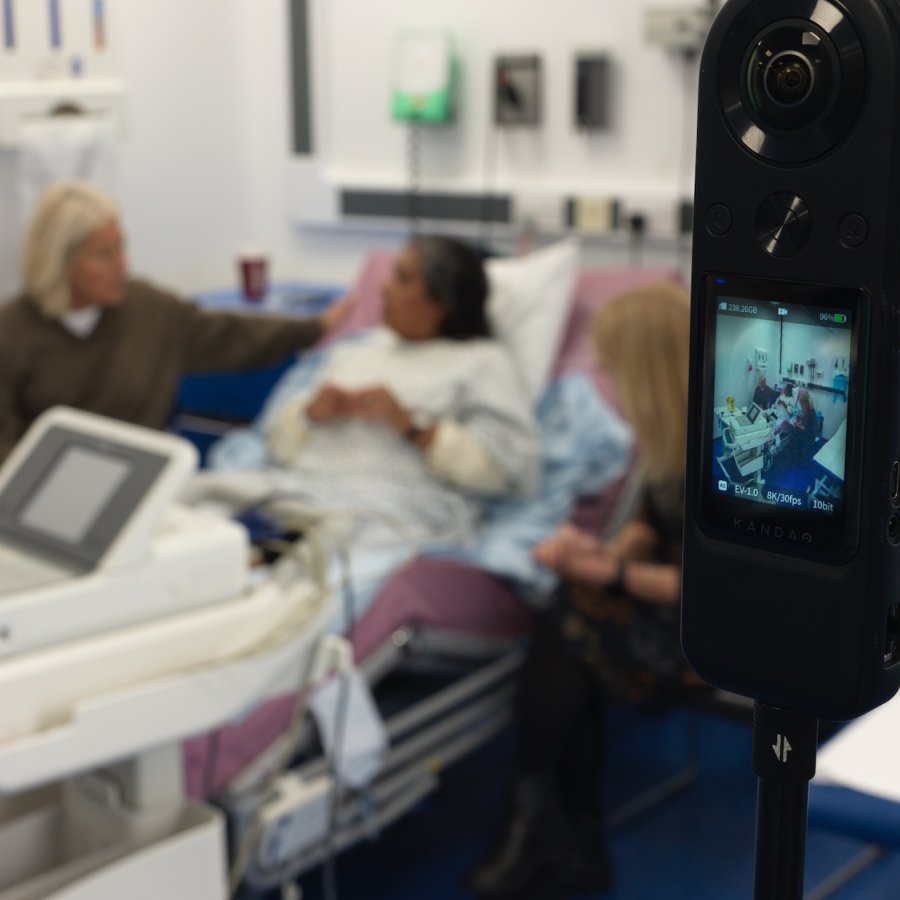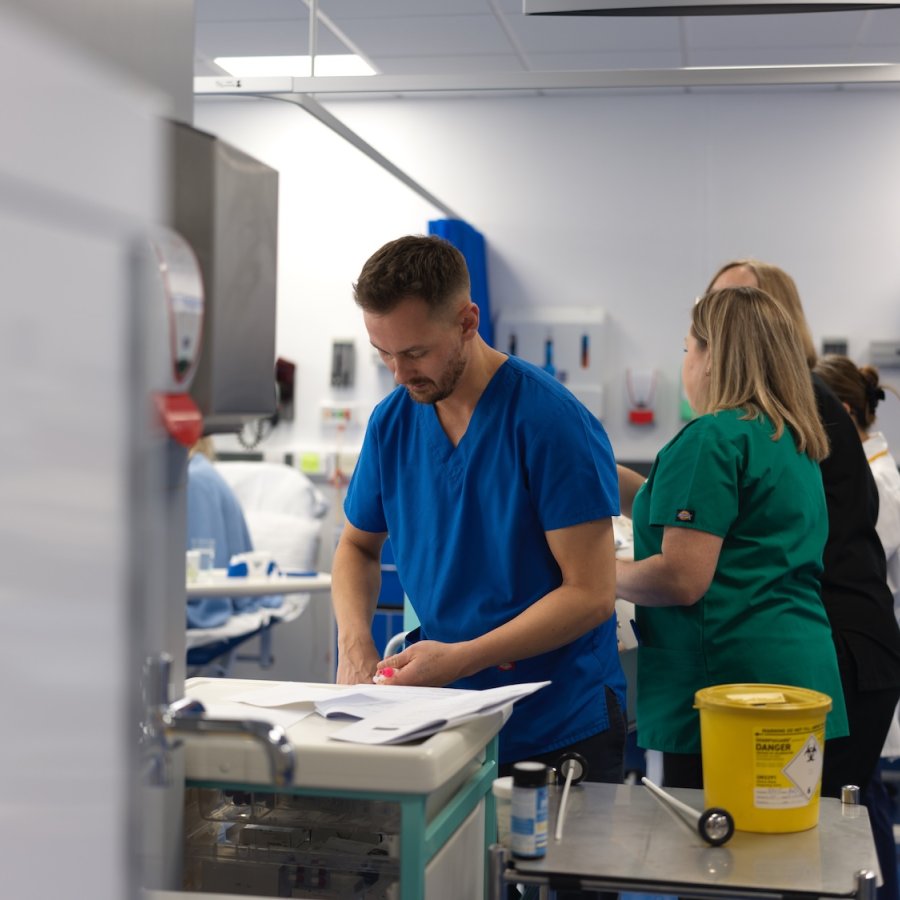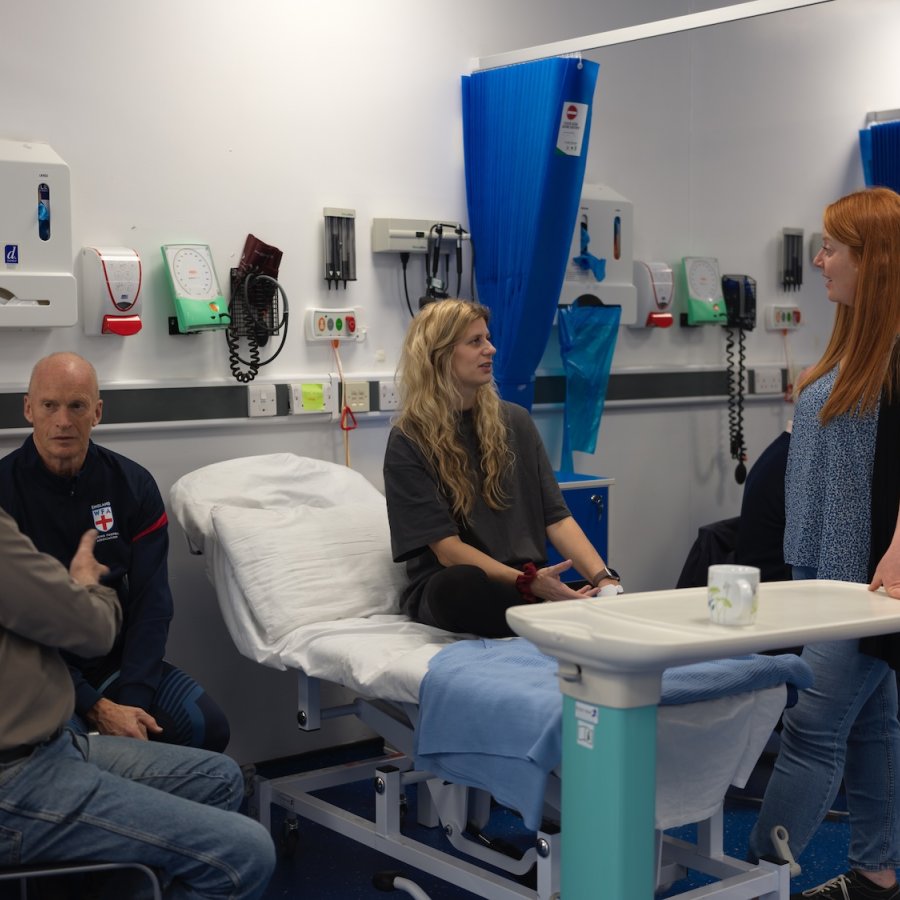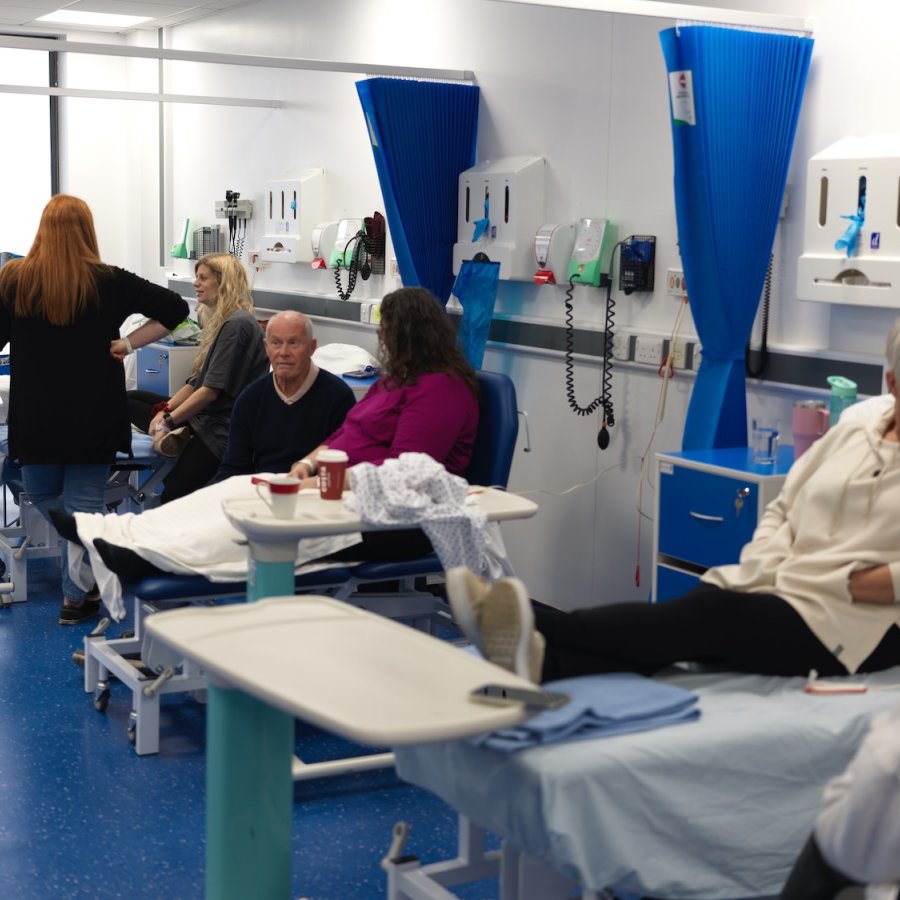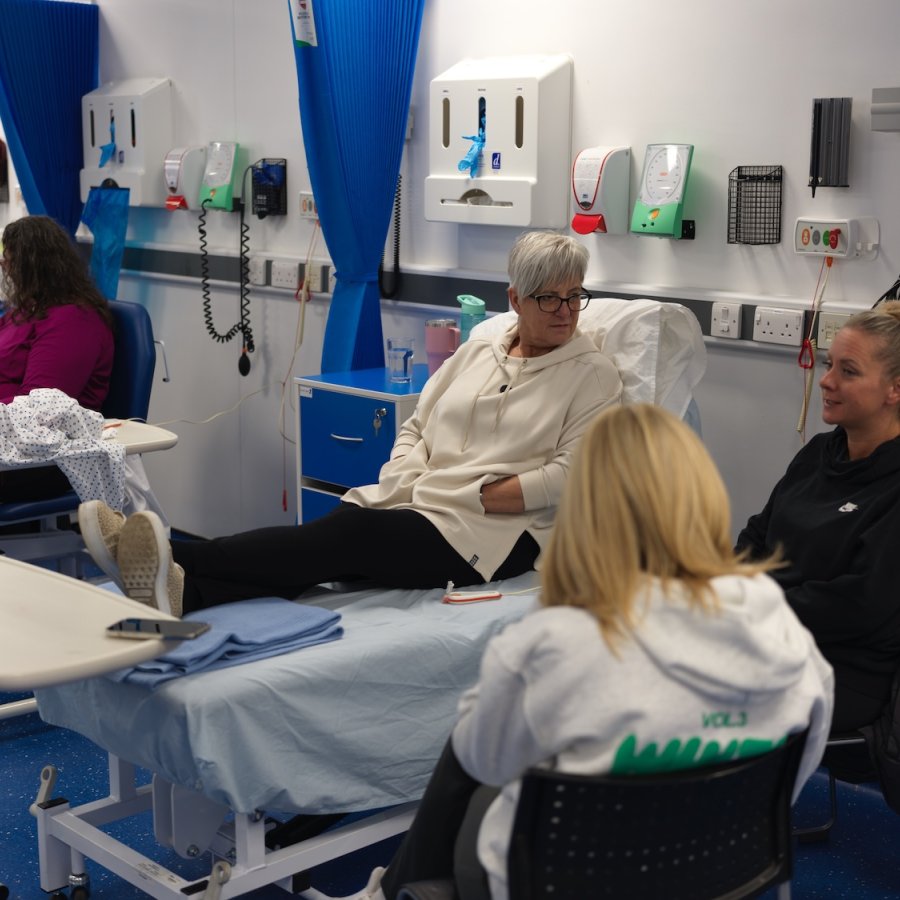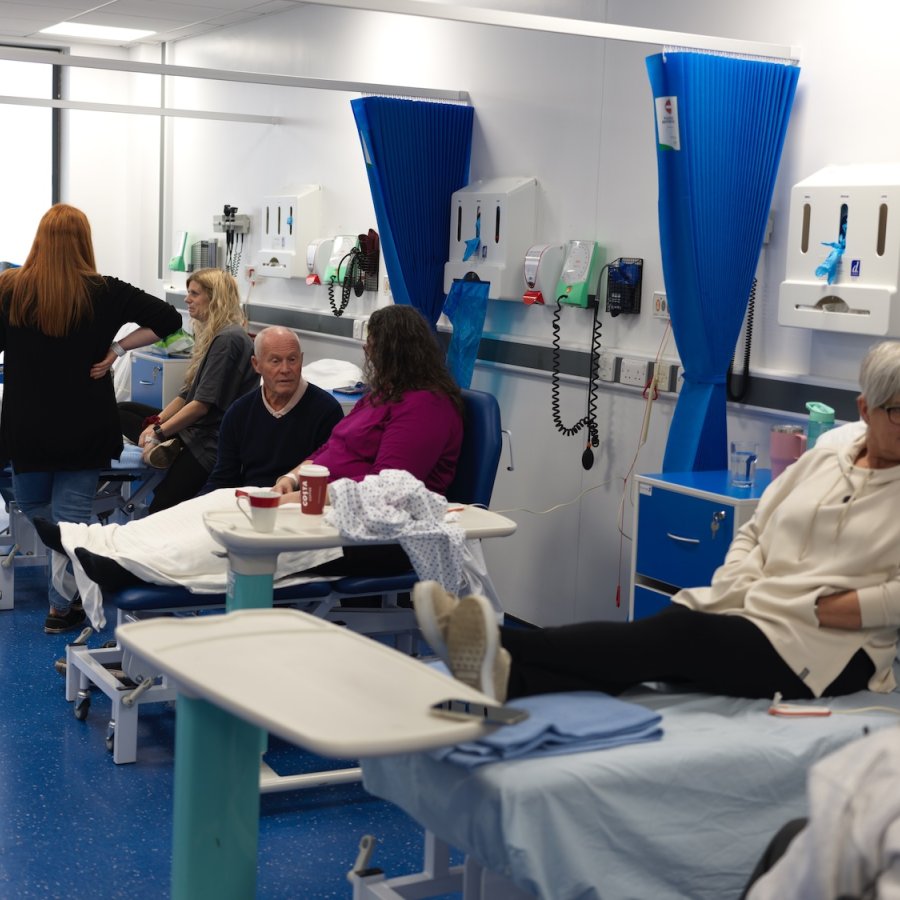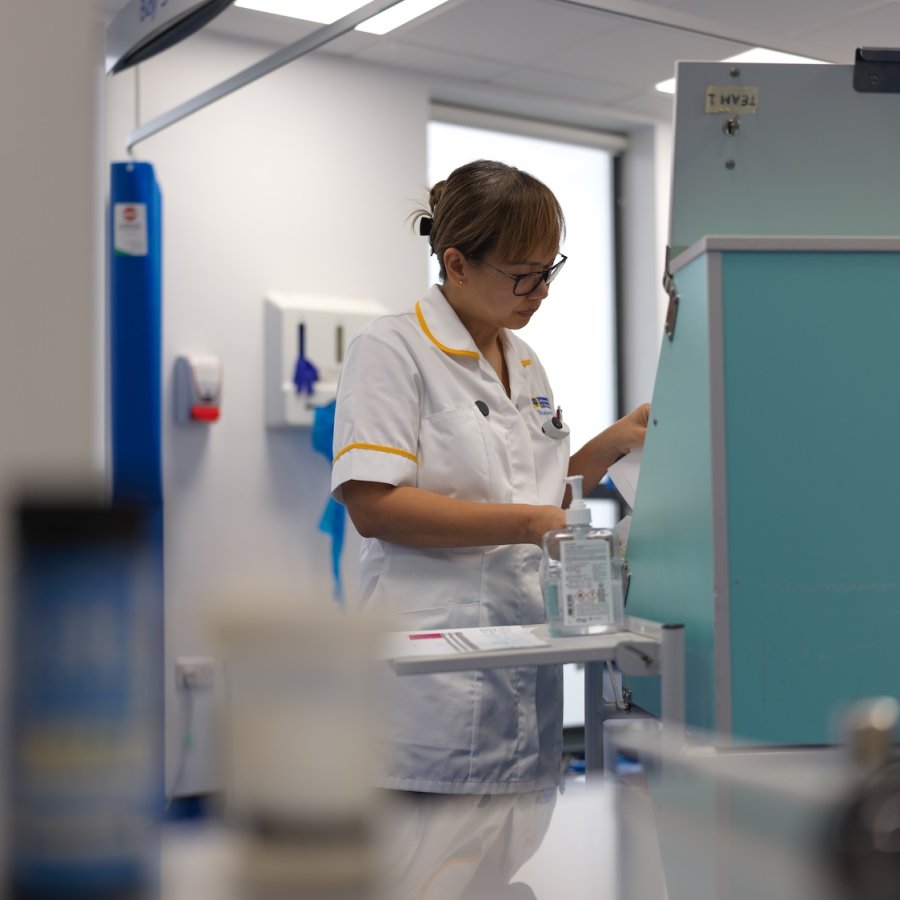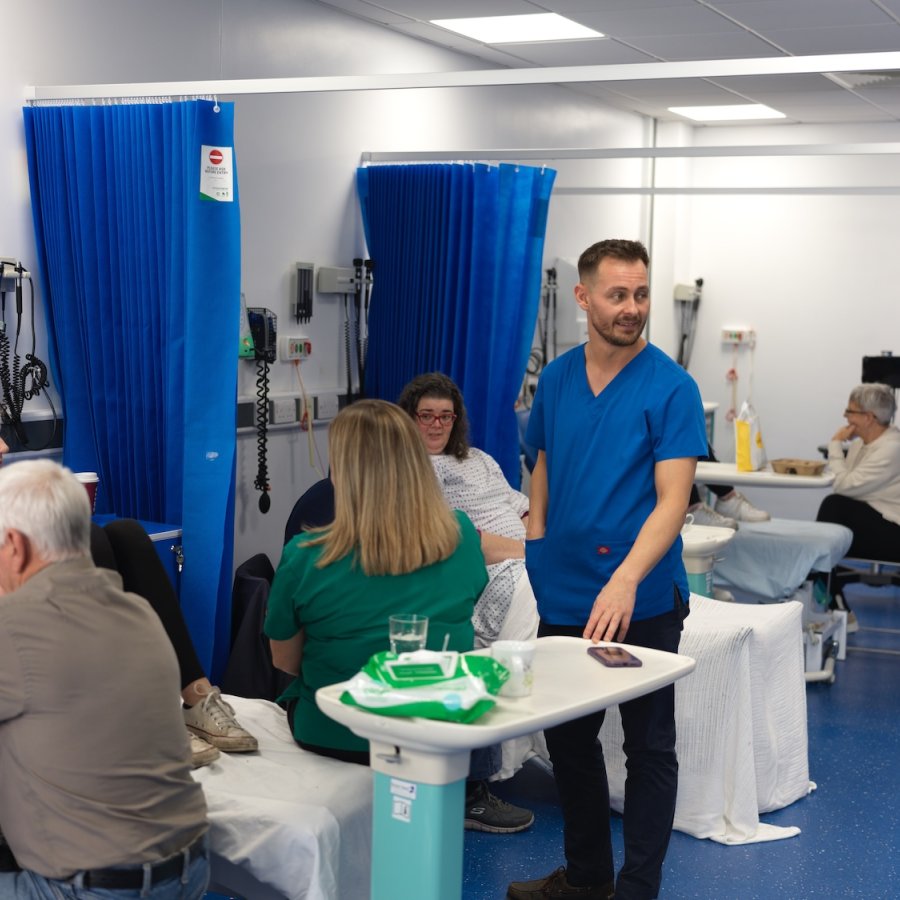Contact Us
+44 20 32897141 / 1 Pickle Mews, London, SW9 0FJ
The Client & Concept
The University of Greater Manchester (formerly University of Bolton) School of Nursing and Midwifery has been ranked number one for student satisfaction in the north west by the Complete University Guide for four years in a row. Given their recent trial of virtual reality (VR) training to widen accessibility to core medicines management knowledge, we can understand why.
In February 2025, 200 students from the school took part in medical VR training to simulate drug management during ward rounds. Usually, these simulations need actors, educators, a replica clinical setting, plus time to set up and run the activity. In a word, it’s expensive. However, with the new VR simulations we filmed and made accessible to all the school’s students, the university has found an effective way to reduce the costs associated with medicines management training and academia.
The Brief
The School of Nursing and Midwifery was introduced to ExR Education by Paul Watson from the University of Greater Manchester. We'd worked with Paul on building a bronchoscope VR training tool for the University of Plymouth, whilst he was completing his PhD.
Sean Freeman and Amanda Costello from the University of Greater Manchester were interested in how virtual reality could be used to make the medicines management simulations more efficient. The team sought to improve how they teach medication safety by creating an immersive 360-degree simulation of a clinical drug round. Traditionally, each individual nursing student takes a turn, which means the clinical setting, actors, and educators are needed for half a day per session. They also found that traditional methods don’t always capture the fast pace or complexity of real-life practice and wanted to find a way to bring that experience to learners, especially student nurses. By recording a simulated medication round, they aimed to help build confidence amongst learners, develop decision-making skills, and become more aware of the challenges they may face on a ward, all within a safe and supportive learning environment.
The team were looking to work with a VR specialist with experience curating simulations for healthcare education, to create an engaging, realistic simulation that was rooted in good pedagogy. The end result had to offer a flexible and accessible learning tool that encourages reflection and supports different learning styles, ensuring consistent training for all students, especially for learners who may not have frequent exposure to these scenarios during placement.
We worked with the team to conceptualise a VR technology simulation for their newly validated Maternal Medicine module.
Making Medicines Management Training Virtual
To develop the 360-degree simulation, which would be compatible with VR headsets and online platforms, we began with a planning phase. Guided by the team at the university, who scripted the scenario, mapped learning outcomes, and identified key decision points, we guided them through the best filming process to deliver on their outcomes. Nick Culley, our managing director and production specialist, collaborated with the university to plan out the filming logistics, which even included rehearsals for clinical accuracy. Over one day, Nick filmed a series of six different medicines management rounds. We then converted these to 360° VR simulations. Each follows a scaffolding approach, starting with basic calculations before progressing to more complex medication dosage scenarios. The films are designed to support nursing students and professionals across adult and mental health nursing.
The medical VR training teaches nurses:
How to identify the key components and units involved in medication dosage calculations
The fundamental principles of safe medication calculations (including conversions and basic formulas)
How to apply the knowledge in a clinical setting and accurately perform medication dosage calculations for various forms of medications (like tablets, liquids, and intravenous (IV) drugs)
What to look for when assessing complex scenarios involving IV infusions and weight-based dosage
Critical assessment skills to ensure the accuracy and appropriateness of different medication calculations in real-world clinical scenarios
How to design and solve medication dosage problems across different nursing fields
To add to this, the content was designed to reflect the real pressures of a clinical environment, with interruptions, time constraints, and prioritisation and to give learners the opportunity to observe how these challenges are managed in practice.
Experience the medical VR training films by clicking here.
The Impact of VR Training on the University’s Student Nurses
Students at the university now use these films to immerse themselves in the training while on-site in the classroom. They watch the training with Google’s cardboard VR headsets (you can also access them with other headsets, like the Pico Ultra 4 Enterprise, too!).
Our co-founder and medical director, Jonny Abbas, says: “This is a great use of VR for medical training. Given the increase in nursing students, and the scaling costs of traditional simulation, this type of VR experience is keeping the cost of medicine management simulation training down and widening access for nursing students.”
Jonny's feelings were shared by Sean Freeman who was impressed with the impact the virtual training had on the students during its initial roll out.
“We set out to create an engaging, realistic, and accessible learning resource that would support medication safety education, and the final 360-degree simulation has done just that. It’s allowed us to bring the complexity of a clinical drug round to life in a way that traditional teaching methods often can’t (and reduced costs long term i.e. consumables and staff). Learners have responded really positively, particularly to the opportunity to pause, reflect, and revisit key moments, which has helped deepen their understanding and confidence. The impact on our organisation has been really encouraging. The recorded simulation will be integrated into our curriculum. It’s also sparked wider interest in the use of immersive content across other areas of clinical education. While we’re still in the early stages of formally evaluating outcomes, initial feedback from students has been overwhelmingly positive. Many have commented on how “real” the experience felt and how valuable it was to see the full medication round from start to finish, including all the distractions and decision-making involved. We're planning to collect more structured feedback and engagement data as part of our ongoing evaluation.”
Sean Freeman, Senior Lecturer, School of Nursing and Midwifery, University of Greater Manchester
Future VR Nursing Training for the University of Greater Manchester
The School of Nursing and Midwifery has now implemented the films into its curricula, and it’s also become the subject of ongoing research projects at the university. Since this initial project with the school, we’ve gone on to film more training with the North West Maternal Medicine Network, too. The films are currently in review and we’re looking forward to publishing them later this year.
About ExR Education’s VR Training Platform
ExR Education’s virtual reality training films are freely accessible to NHS workers, and those we made in collaboration with the University of Greater Manchester are no exception. Users with an NHS login can watch the medicines management training from their smartphone, laptop, or VR headset, at a time that suits them. They can pause, rewind, and rewatch each session to improve their knowledge of responsible drugs management and ward round competency.
“We chose ExR because they’re a locally based company with a solid track record in healthcare education and immersive content. Having a team nearby made collaboration so much easier, it meant we could have regular check-ins, be involved in the planning and filming process, and really work together to make sure the simulation met our goals. Their experience in both clinical education and VR technology gave us confidence that they understood exactly what we were trying to achieve. What set ExR apart was their ability to bridge the gap between pedagogy and production. They didn’t just film a scenario, they helped shape it from an educational perspective, ensuring it aligned with learning outcomes and reflected the realities of practice. That level of insight and partnership was something we hadn’t seen offered elsewhere.”
Sean Freeman, Senior Lecturer, School of Nursing and Midwifery, University of Greater Manchester
To advance medical training with VR at your university or medical school, please contact our team.
Want to join in?
Please type us a message.
